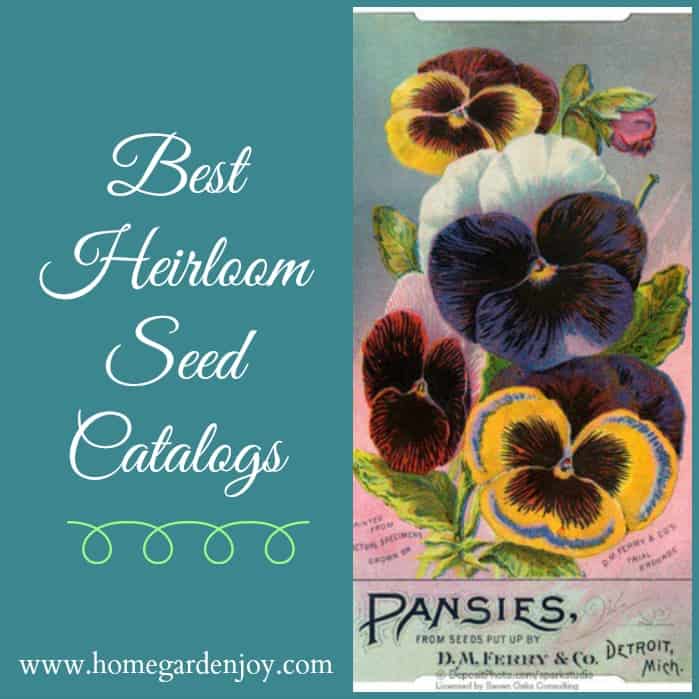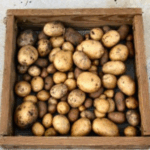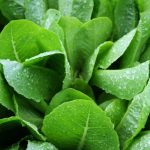What are the best heirloom seed catalogs, and what makes them the best? What exactly are heirloom seeds, and why are gardeners talking about them?
Heirloom Seeds
For those new to gardening or casual backyard gardeners, the term heirloom seeds or heirloom plants may be new. The term “heirloom seeds” is used in the United States, but in the United Kingdom you may see terms such as heirloom fruits or heirloom cultivars. Heirloom seeds are seeds from heirloom plants – plants whose heritage extends back through the generations. These seeds are typically open-pollinated, meaning that the winds, bees and insects do the job of creating new hybrids rather than mankind. Many of these seeds have been passed down from generation to generation.
There’s really no exact definition of an heirloom plant. In fact, if you get a group of gardeners together in one room and want to start an argument, just ask them to define heirloom plants. Some will tell you that a true heirloom species must be 50 years old or older; others claim that heirlooms are only seeds handed down within a family.
Let me give you an example of how crazy the definition of heirloom seeds and plants can get. I have a coffee can filled with marigold seeds in my garage. These seeds are open-pollinated, and descended from plants grown in my father-in-law’s garden in Long Island, New York. Those marigolds growing in HIS garden are descended from his mother’s garden in Queens, New York. Where she got those seeds from is a mystery, as is the exact date when these plants appeared.
My marigold seeds grow medium-sized, orange flowered marigolds tinted with red; they are incredibly hardy, disease and cold resistant. They also resist drought. When I tell you they are miracle marigolds, they really are. They also seem to have superb abilities at repelling tomato hornworms. Only my best friends get a seed packet from these babies!
But are my marigold seeds truly “heirloom seeds?” They’re open pollinated for sure. They were passed down through my husband’s family for at least three generations, so to some experts, they would be considered heirloom seeds. But are the seeds new varieties developed in my husband’s grandmother’s garden 50 years ago? Who knows? I’m not in the business of selling seeds, so I don’t care if they’re a new variety or not. I like them, so they stay in my garden as pass-along seeds and reminders of generations past.
Benefits of Heirloom Seeds
One of the hallmarks of heirloom seeds and plants is their hardiness. Some (although not all) are hardier and more disease-resistant than more recent hybrids. I saw some, but not all, because scientists have also done a great job of cross-pollinating plants in the laboratory to create new varieties with specific disease resistance characteristics.
Are Heirloom Seeds Healthier for You or Your Garden?
There are many good reasons to grow heirloom plants in your garden, but health isn’t one of them. There’s really no health benefit to growing heirloom seeds over conventional ones. What you may find, however, is a more pleasing taste among heirloom fruits and vegetables, or a specific trait that you cannot find among supermarket varieties.
There’s a tomato variety called “Brandywine” that made its resurgence in the 1990s. Prior to that, it was thought lost. Seeds were found for Brandywine among the Pennsylvania Amish communities who had saved the seeds and passed them along throughout the generations. Smart commercial growers began propagating this heirloom tomato, and now you can purchase plants at garden centers or seeds from your favorite nursery or seed catalog. I tasted my first Brandywine tomato last year and it was delicious – a layer of flavor, tart and sweet, unlike any other tomato I’ve ever tasted. If you’ve ever spit out a supermarket tomato in disgust (I call them cardboard fruit), then you’ll know why I wax poetic about the flavors of a good tomato. Truly any fresh tomato will beat a store bought tomato in terms of flavor, but some of the heirloom varieties are amazing.
And that’s really why people grow them. For flavor, texture or in the case of flowers, colors they can’t find elsewhere. If you’re a cook, growing your own heirloom vegetables adds another dimension to your culinary creations. You can grow your own heirloom lettuces, tomatoes, herbs and other vegetables for amazing salads and side dishes. The possibilities are endless.
The Best Heirloom Seed Catalogs
Choosing the best heirloom seed catalogs was a difficult task. I’ve found some wonderful seed varieties that were difficult to find elsewhere from among these popular catalogs. Most offer a free garden seed catalog which can be mailed to your home; others economize by selling solely through their website. Contact each company directly for a copy of their offerings, and enjoy. The best part of being a gardener in winter is browsing seed catalogs and dreaming of the day when you can actually plant your purchases!
- Seed Savers Exchange: Seed Saver Exchange was founded in 1975, and has been at the vanguard of the heirloom seed movement since their inception. Their offerings are legendary, and you can find some great heirloom vegetables, fruits and herbs in the Seed Savers Exchange catalog. They’re also a non-profit organization, so profits are channeled back into the organization to continue their mission of saving and sharing heirloom seed varieties.
- Territorial Seed: Territorial Seed is often cited as a favorite among gardeners seeking heirloom seeds. I’ve purchased melon varieties from them and was pleased by the quick germination of the seeds, as well as the selection. They offer a wonderful catalog with beautiful artwork.
- Baker Creek Heirloom Seeds: Baker Creek’s Whole Seed Catalog is deemed “the” catalog that every serious gardener should have among their selection of seed catalogs. Baker Creek offers a wide variety of heirloom and rare seeds of all types. If you’re a serious kitchen gardener, someone who loves to cook with what you grow, Baker Creek is bliss, sheer bliss. Recommended. Their catalog is available online.
- Kitazawa Seed Company: I’ve seen this one come up in numerous online discussions and articles about heirloom seeds, but I have never personally ordered from them, so I can’t give you a recommendation. Their website says they were founded in 1917, and specialize in Asian vegetables. That sounds intriguing! You can probably find some very difficult to find and rare vegetable seeds on the Kitazawa Seed Company website.
- The D. Landreth Seed Company: The D. Landreth Seed Company bills itself as the oldest seed company in America. They were founded in 1784, and continue to this day selling rare and heirloom plants and seeds. They also sell old-fashioned products like hand milled soap. If you love historical catalogs and companies that honor their traditions, this is a fine catalog. Like Kitazawa, I’ve never ordered from them, although I’ve drooled over their gardening catalogs, especially some of the gardening tools and accessories. With gardening, sometimes the older style tools really did get the job done better than the new-fangled gadgets, and the D. Landreth Seed Company stocks many old-fashioned tools to make planting, cultivating and harvesting easier.
Do you have a favorite heirloom seed catalog? Share it here in the comments section!






I’ve been looking for this exact bit of information! I’m planning to expand my garden this year. Pinning so I can come back later 🙂
I don’t know how you know all this stuff, you are like a garden encyclopedia and if I ever have a garden you will be my chief adviser in charge. I love all your tips and ideas you have been sharing. I have added you to my bloglovin’ so I have all my favorite blogs in one neat place. Happy New Year!
LOL Dagmar! A lot I learned as a child,and I also worked at a garden center many years ago. I earned my Virginia Master Gardener certificate a few years ago. I took six month’s worth of classes in all aspects of gardening. If I don’t know something, I just look it up! Gardening really is my passion. Thanks for dropping by and for adding me to your favorite blogs. I appreciate it.
This is a treasure trove of information. So glad you shared with us at the Home Matters Linky party!
How kind of you to stop by and share this, Shirley! Thank you! I enjoyed visiting some of the Home Matters blogs in the party and look forward to participating more.
What great info – I can’t wait to start picking out my seeds for this year! 🙂 #HomeMattersParty
I kind of new to the gardening thing and any tip is appreciated and these are great!!
It’s been great co-hosting with you this month!
Such useful information! I think we are all ready for Spring! #HomeMattersParty